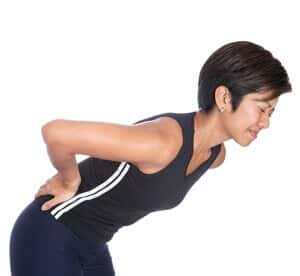
At our last review, statins remain among the most prescribed drugs in the United States. Atorvastatin (Lipitor) was big # 1. Over 26 million people take this drug daily. More than 114 million prescriptions were dispensed. If the average Rx is “only” 30 pills to the bottle, that represents 3,420,000,000 tablets. That’s probably conservative because many insurance companies encourage 90 pills per bottle to save money. Let’s not forget simvastatin (Zocor) with another 8+ million people filling 36.6 million prescriptions and rosuvastatin (Crestor) with 7+ million getting nearly 30 million prescriptions. Just those three cholesterol-lowering drugs represent more than 5 billion pills dispensed in the US annually. For reasons that mystify us, many physicians insist that these drugs do not cause muscle pain, despite adverse reactions such as “myalgia” (which means pain in muscles) and “musculoskeletal pain” listed in the official prescribing information.
Readers Share Stories About Statins and Muscle Pain:
Q. A number of years ago, my cardiologist prescribed a statin. After taking it for a while, I started having muscle aches and pains.
These were so severe that I went to the emergency room. However, extensive testing did not reveal the cause.
I asked the cardiologist if the statin might be responsible for the problem. He said probably not, as there was no reliable evidence that such side effects were related to statins. He agreed however, that I might try getting off the statin. Almost as soon as I stopped taking it, all the pains went away.
Years later, another doctor insisted that I needed a statin. I told him about my experience, but he also said statins don’t cause muscle pain.
He put me on rosuvastatin. Within a few days, I began having the same problems. When I stopped, the pains disappeared. Since then, I keep my blood cholesterol in an acceptable range without statins.
A. Surprisingly, cardiologists often disagree about statin side effects.
In an editorial in JAMA Internal Medicine (Aug. 23, 2022), Dr. Rita Redberg and her colleagues suggest that:
“…in observational data, statin-associated muscle symptoms affect up to 1 in 10 individuals.”
A reader complains about statins and muscle pain:
Q. My doctor insists I must take statins to lower my cholesterol even though I experience pain with all of them. Sometimes the pain gets so bad that I struggle not to cry when I walk down the hall of my child’s school.
My doctor says I should accept what he calls “a little discomfort” because studies show statins reduce heart disease. He gets angry if I refuse to take them.
Who is ultimately responsible for my health, me or my doctor? He says this pain is rare but I know a lot of people who have had the same severe muscle pain.
A. We too have heard from many patients who experience debilitating muscle pain as a side effect of statin-type cholesterol-lowering drugs.
Another reader wrote:
“I have had problems with Lipitor and Vytorin. I had severe muscle and nerve pain. My doctor said he didn’t believe it was from Vytorin. I stopped the medication and slowly got better. It took 7 weeks.”
Some doctors just don’t believe that statins can cause side effects such as muscle or joint pain or memory problems. Others have seen so many cases they have developed different strategies for lowering cholesterol. If your doctor isn’t taking your complaint seriously, you may need to see another doctor.
An Alternative to Statins for People Who Experience Muscle Pain:
In a research paper published in the New England Journal of Medicine (April 13, 2023), Dr. Steve Nissen and colleagues wrote:
“…7 to 29% of patients report adverse musculoskeletal effects that prevent them from using statins…”.
Steven Nissen, MD, MACC, is Chief Academic Officer of the Sydell and Arnold Miller Family Heart, Vascular & Thoracic Institute at the Cleveland Clinic. Dr. Nissen holds the Lewis and Patricia Dickey Chair in Cardiovascular Medicine at the Lerner School of Medicine.
Like Dr. Redberg, he is one of America’s most distinguished cardiologists. Dr. Nissen has been a frequent guest on the nationally syndicated public radio show, The People’s Pharmacy with Joe and Terry Graedon.
There are other ways besides statins to reduce the risk of heart disease. Dr. Nissen’s study of bempedoic acid (Nexletol) reveals one option. To learn much more about this relatively new drug, you can listen to our podcast with Dr. Nissen. He discusses the pros and cons of Nexletol at this link.
We have included many additional options, including non-drug approaches, in our eGuide to Cholesterol Control & Heart Health. This online resource can be found under the Health eGuides tab.
Please Share your Experience with Statins:
There is another muscle problem associated with statins. It’s called “myositis.” It is much more serious than myalgia or standard-issue muscle pain. You can read about the difference between myalgia, myopathy and myositis at this link and learn about their relationship to statins.
Have you ever taken a statin to lower your cholesterol? How did that work for you? Please scroll down to the comment section below and let us know your statin experience.
Citations
- Nissen, S.E., et al, "Bempedoic Acid for Primary Prevention of Cardiovascular Events in Statin-Intolerant Patients," JAMA, June 24, 2023, doi:10.1001/jama.2023.9696

